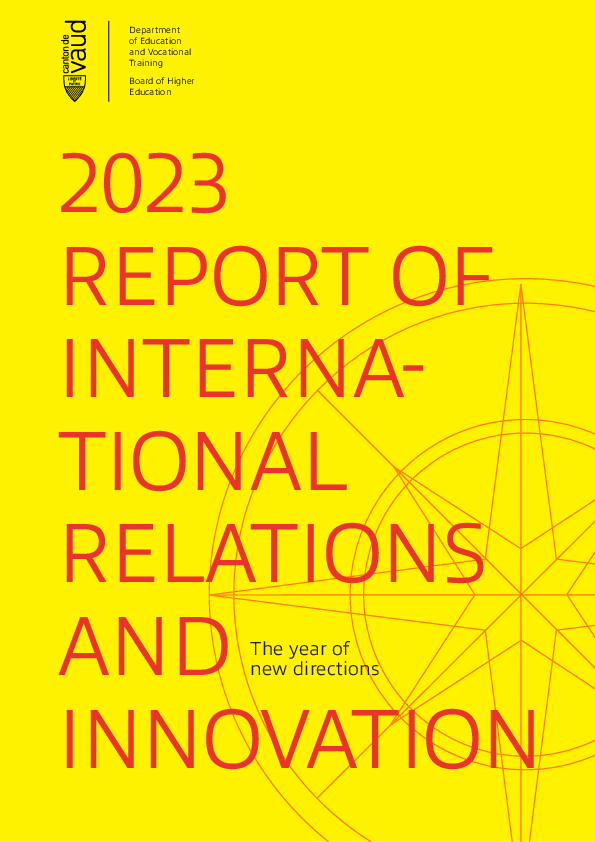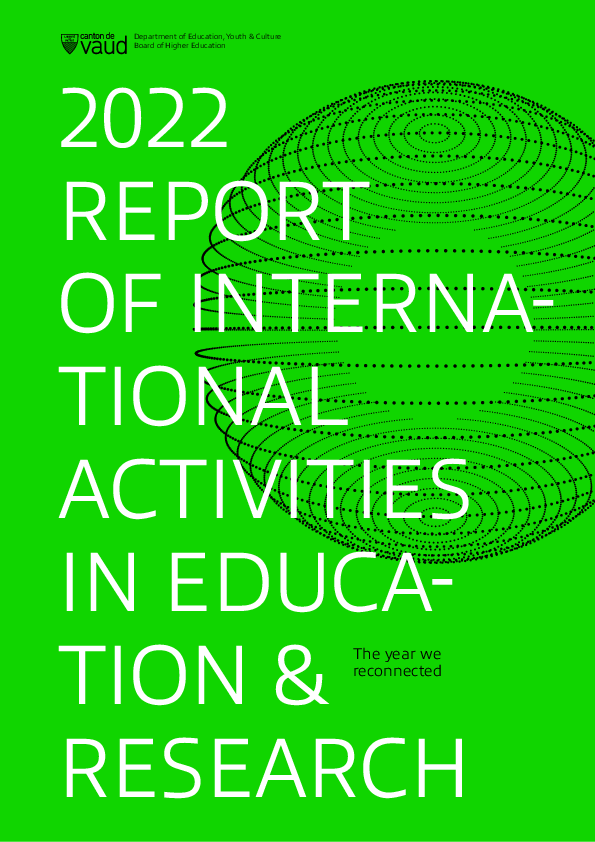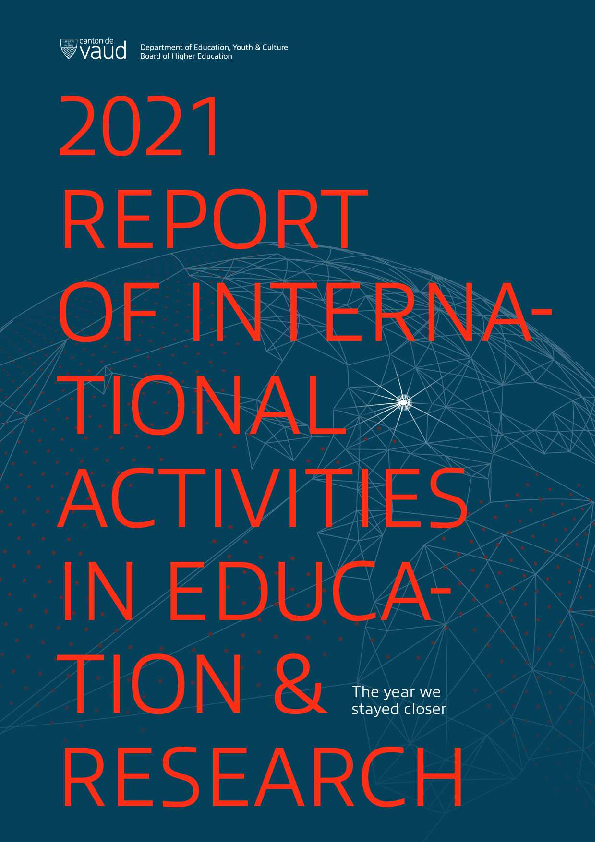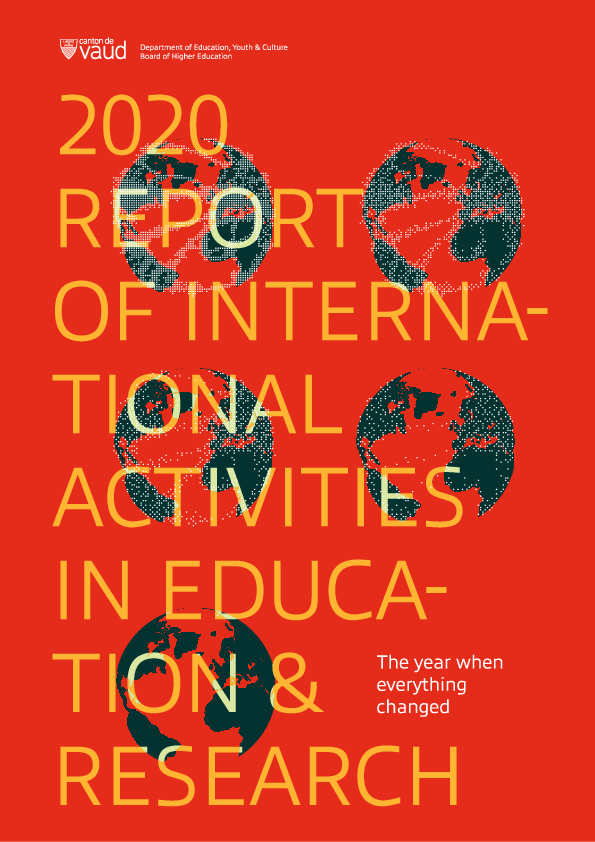International Relations
Established in 2006, the International Relations department of the Board of Higher Education is committed to advancing the internationalization of higher education institutions and providing students and researchers from Vaud with valuable global experiences.
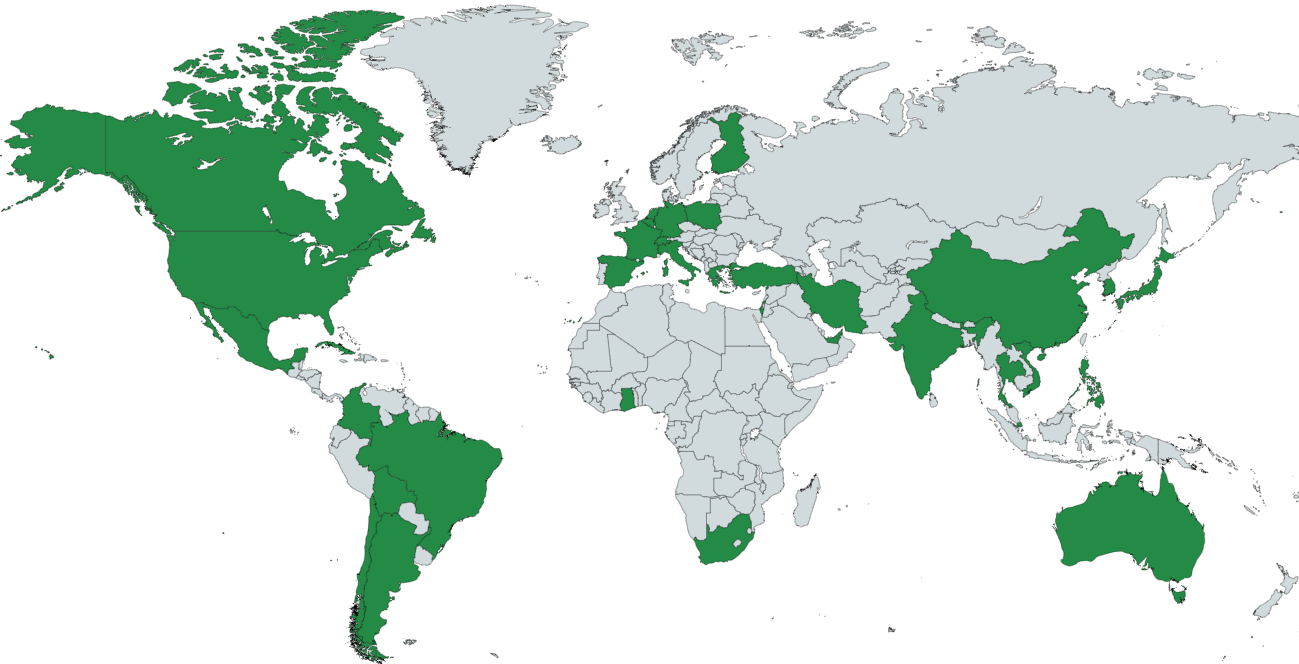
General concept
Through specific academic programs that grant credits, students spend one to four weeks working within partner universities around the world. Some programs are hybrid - combining remote and in-person participation - while others take place entirely on site.
The professors and researchers who supervise them, in turn, engage in the experience of team teaching. The programs are designed meticulously within the higher education institutions and, in most cases, benefit from collaboration with the various swissnex offices, in order to identify the best partners (in the United States, India, China, Brazil, and Japan). The canton covers between 80 and 90% of the costs for Swiss participants.
Reciprocity is one of the major strengths of these exchanges, enabling meaningful encounters between participants as well as genuine cultural exchange. It is worth noting that the development of interdisciplinary projects is particularly encouraged - for example in the fields of health, but also in engineering and economics.
Objectives and Credits
- Broaden professional knowledge through training that complements the usual curriculum, by exploring new practices or approaches within one’s field.
- Enhance adaptability and professional agility when working in unfamiliar or unconventional environments.
- Foster open-mindedness by being exposed to diverse worldviews, cultural practices, and ways of life, in order to better understand the complexity of today’s world.
- Strengthen self-confidence through the acquisition of intercultural skills, learning to overcome linguistic, geographical, and cultural barriers.
- Develop ease in communication within a new cultural context, particularly by expressing oneself in a foreignlanguage and adapting to local social norms.
- Deepen the understanding of another culture by discovering new ways of thinking and cultivating tolerance towards different perspectives.
- Expand one’s academic and professional network internationally, by creating lasting connections beyond Swiss borders.
- Contribute to the visibility and attractiveness of the higher edication institutions in the canton of Vaud, fostering future exchanges in education, research, and innovation.
Each institution awards its own credits, which are earned upon successful completion of a final project and an examination.
Partner Vaud Universities
Haute école d'ingénierie et de gestion du Canton de Vaud (HEIG-VD)
Institut et haute école de la santé La Source (ELS)
Haute école de santé Vaud (HESAV)
Haute école de musique Vaud Valais Fribourg (HEMU)
Haute école d'art et de design (ECAL)
Haute école de travail social et de la santé Lausanne (HETSL)
Université de Lausanne (UNIL)
Haute école pédagogique du Canton de Vaud (HEP Vaud)
Haute école de viticulture et d'oenologie de Changins
Come to Vaud Universities!
Activity Reports
Former activity reports: 2019 (pdf, 4.56 Mo), 2018 (pdf, 6.83 Mo), 2017 (pdf, 12.34 Mo), 2016 (pdf, 4.67 Mo)
Swissnex
Swissnex is Switzerland’s global network connecting the country to the rest of the world in the fields of education, research, and innovation, and a valuable partner for exchanges involving the higher education institutions in Vaud.
Swissnex Boston and New York
Swissnex Brazil
Swissnex India
Swissnex San Francisco
Swissnex China
Swissnex Japan
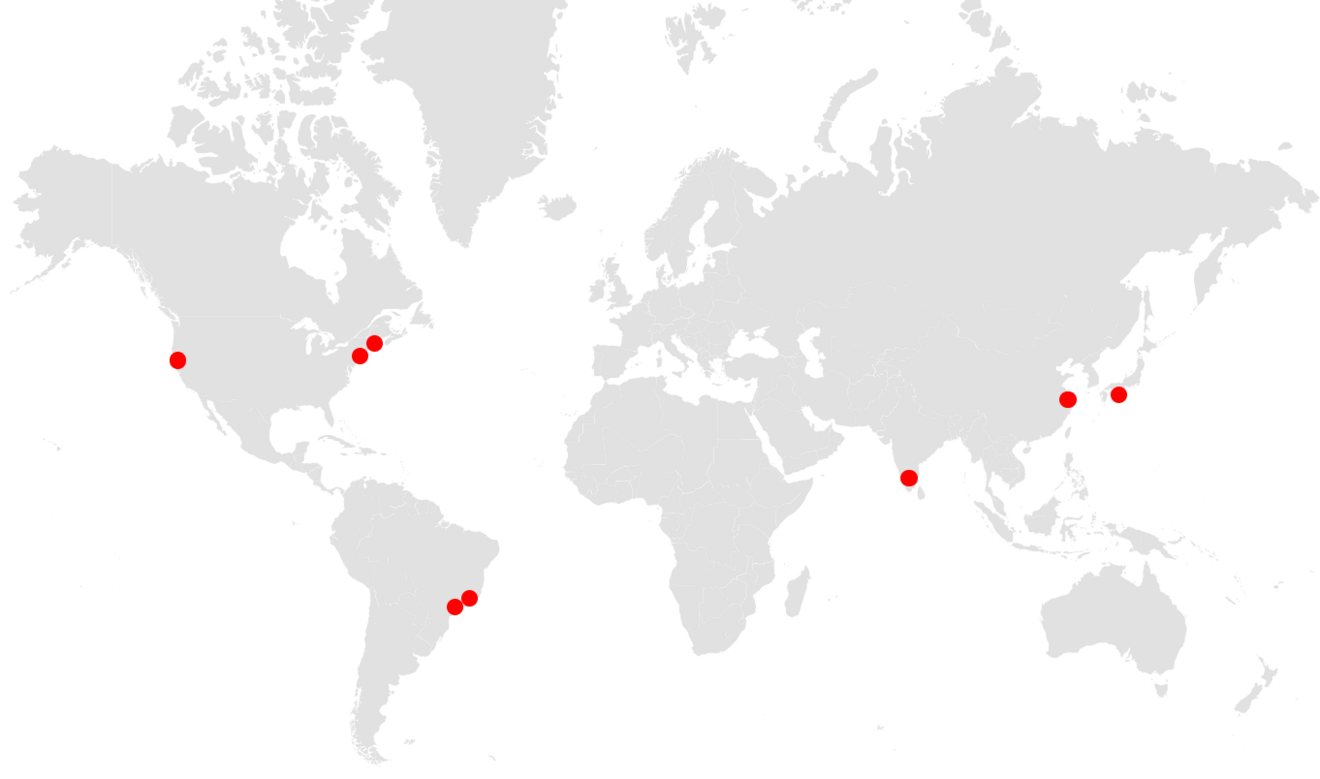
Leading Houses
Certain Swiss higher education institutions are mandated by the State Secretariat for Education, Research and Innovation (SERI) to act as Leading Houses. Their main mission is to promote new cooperation in research and innovation with regions of high scientific potential outside Europe. These Leading Houses develop tailored cooperation instruments that take into account the interests of the Swiss scientific community and innovation stakeholders. Such instruments include seed funding for pilot projects in research and innovation, support for international workshops and seminars, as well as modest grants to support researcher mobility.
In addition, the Leading Houses represent the interests of the Swiss scientific community vis-à-vis international cooperation partners and serve as contact and information points for scientific cooperation in the respective regions.
In agreement with the Rectors’ Conference swissuniversities, the following higher education institutions have been mandated as Leading Houses for the 2025-2028 period to implement projects and activities in the targeted regions:
- North Africa and the Middle East: University of Applied Sciences and Arts Western Switzerland (HES-SO)
- Sub-Saharan Africa: Swiss Tropical and Public Health Institute (Swiss TPH) in collaboration with the University of Basel
- Latin America: University of St. Gallen (HSG)
- Asia / Pacific: University of Zurich (UZH)
- South Asia and Iran: Zurich University of Applied Sciences (ZHAW)
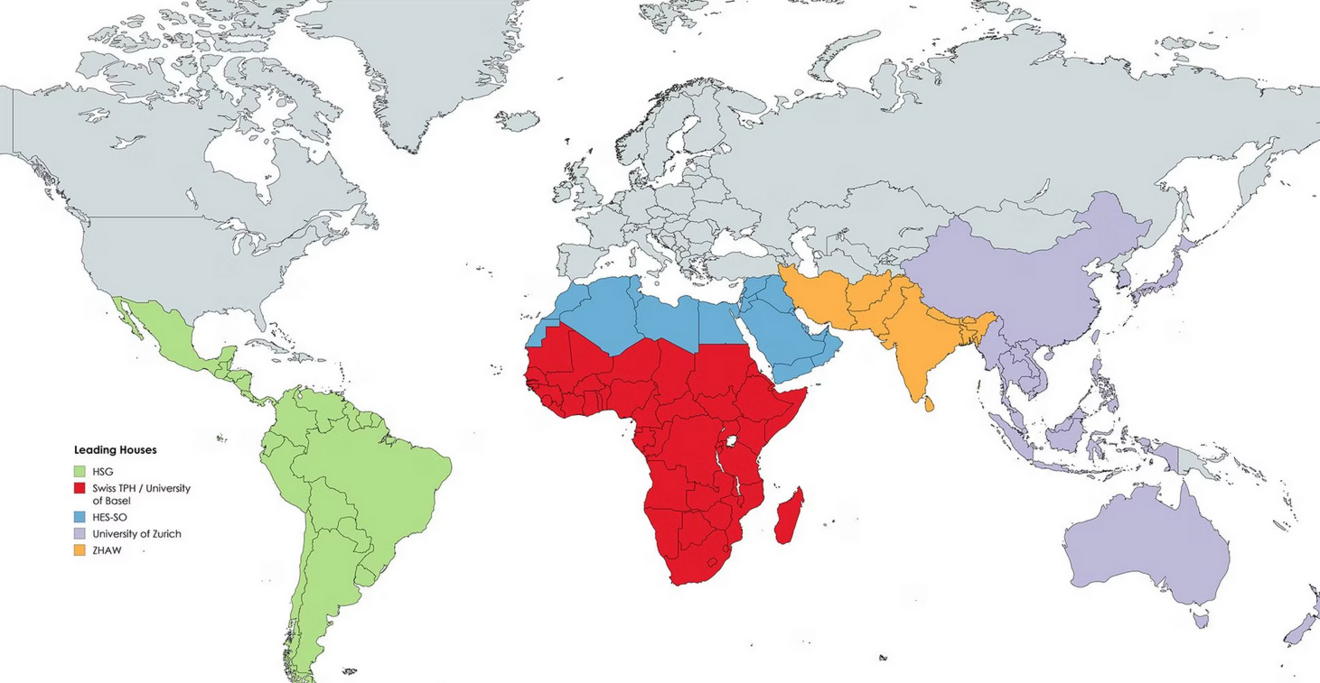
Presence Switzerland
Presence Switzerland works to promote Switzerland’s image abroad and to implement the Federal Council’s strategy for international communication. Its mission includes raising general awareness about Switzerland, fostering a positive attitude toward the country, and showcasing its diversity and attractiveness.
